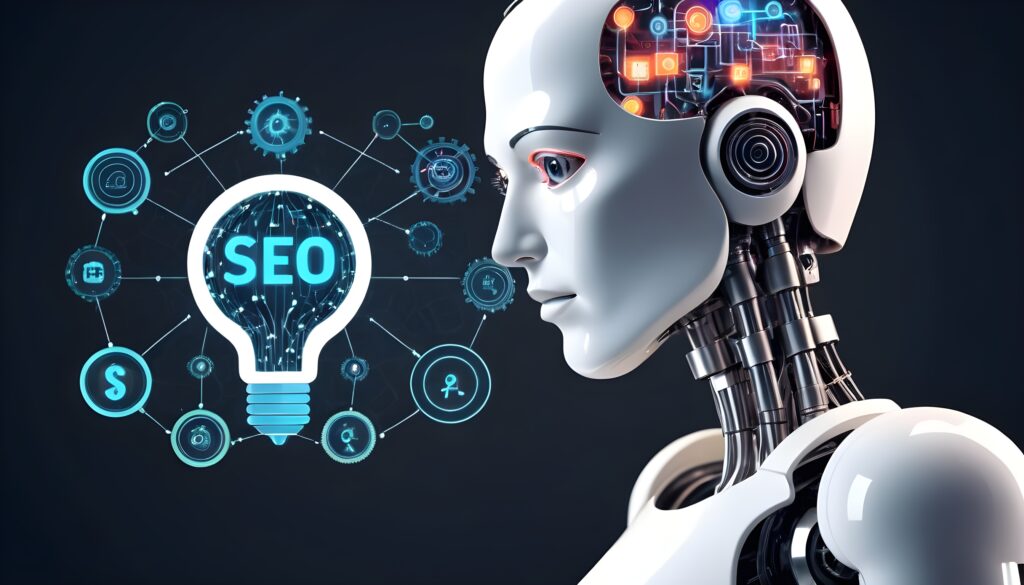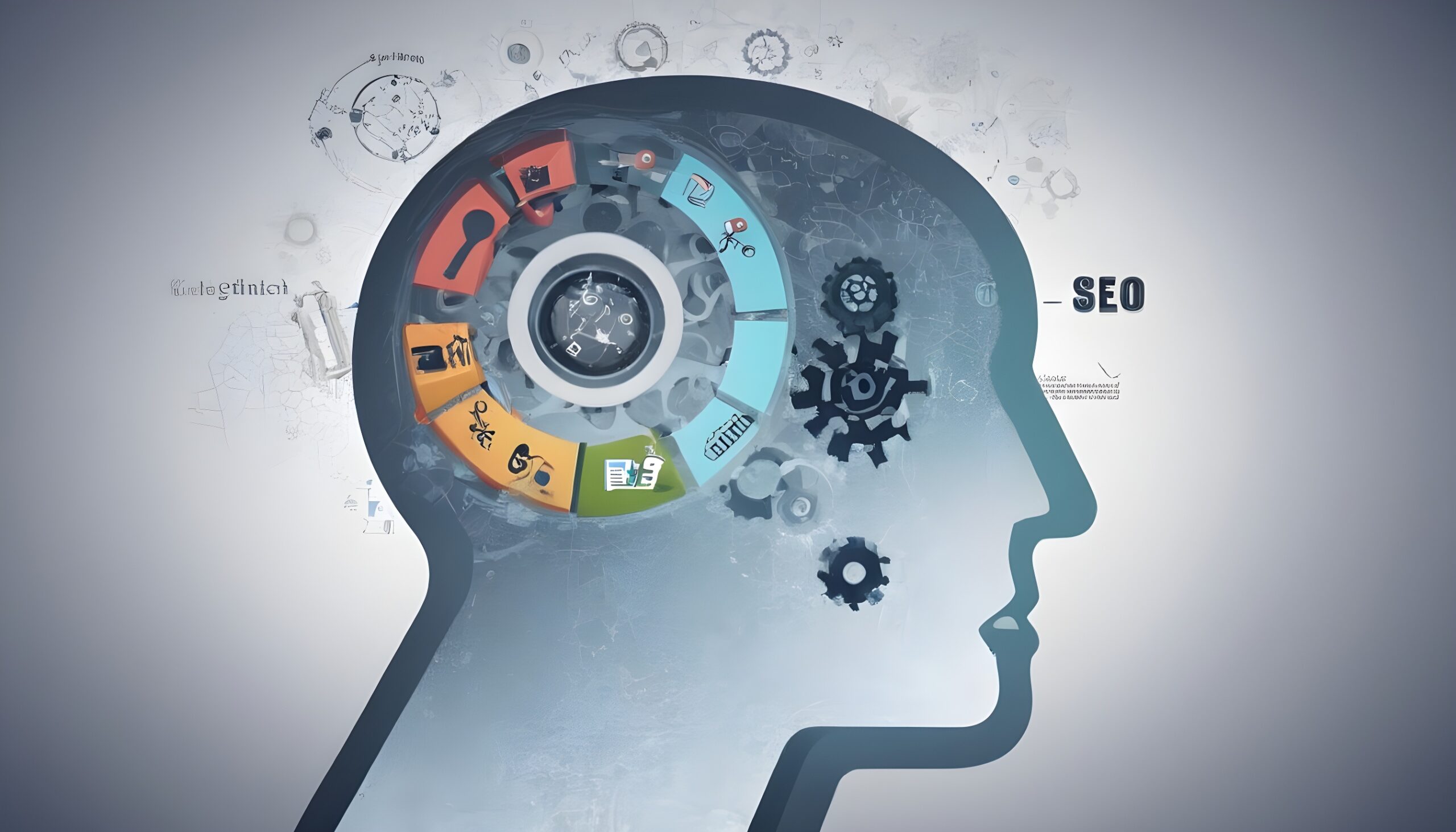Artificial intelligence (AI) has become a transformative force in SEO, fundamentally changing how we approach website optimization for search engines. In the ever-evolving landscape of search engine optimization (SEO), AI has emerged as a game-changer, revolutionizing the way we improve website visibility and achieve higher rankings on search engine result pages (SERPs). From Google's RankBrain to the rise of natural language processing (NLP), AI has become an indispensable tool in the Artificial Intelligence in SEO arsenal, enabling marketers and website owners to stay ahead of the curve and deliver more relevant and engaging content to their target audiences.
RankBrain: Google's AI-Powered Ranking System (Artificial Intelligence in SEO)
In 2015, Google introduced RankBrain, an AI and Machine Learning algorithms designed to better understand and interpret user queries. RankBrain is a core part of Google's ranking algorithm, responsible for analyzing and comprehending the intent behind search queries, particularly those that are ambiguous or have never been asked before.
In the realm of Artificial Intelligence in SEO, RankBrain utilizes machine learning to comprehend the context and meaning behind searches. It analyzes historical data, user behavior, and search patterns to determine the most relevant results for a given query. This AI-powered system has had a profound impact on SEO, emphasizing the importance of creating high-quality, user-focused content that aligns with search intent and user experience.
Natural Language Processing (NLP) and SEO
Artificial Intelligence (AI) in SEO is making significant strides in the area of Natural Language Processing (NLP). NLP refers to the ability of computers to understand, interpret, and generate human language in a more natural and contextual manner.
With the rise of voice search assistants like Siri, Alexa, and Google Assistant, NLP has become crucial for optimizing content for voice searches. Users are increasingly using conversational language and longer, more complex queries when searching by voice, making it essential for websites and content to be optimized for natural language processing.

NLP algorithms can analyze the structure, syntax, and semantics of content, enabling search engines to better understand the meaning and context behind written material. This allows for more accurate and relevant search results, as well as the ability to answer complex queries and provide rich, contextual information beyond simple keyword matching.
AI-Powered Content Creation and Optimization
AI is not only transforming how search engines understand and rank content but also how content is created and optimized. AI-powered writing assistants and content creation tools are becoming increasingly popular, helping content creators generate high-quality, well-structured, and SEO-friendly content more efficiently.
These AI-powered tools can leverage Artificial Intelligence in SEO to analyze user intent, search patterns, and existing content to suggest relevant topics, keywords, and content structures that are more likely to resonate with the target audience and perform well in search rankings. They can also assist with content optimization by analyzing factors such as readability, keyword density, and topical relevance, ensuring that the content meets the latest SEO best practices.
Predictive Analytics and SEO Forecasting
Artificial intelligence is also playing a significant role in predictive analytics and SEO forecasting. By analyzing vast amounts of data, including search trends, user behavior, and competitor activities, AI algorithms can identify patterns and make accurate predictions about future search behavior and ranking factors.
Artificial intelligence in SEO can be a powerful tool for staying ahead of the curve. Predictive analytics powered by AI can help SEO professionals anticipate changes in search engine algorithms, allowing them to proactively adjust their strategies and optimize their content accordingly. Additionally, AI-powered forecasting can provide insights into which keywords, topics, and content formats are likely to gain traction in the future, enabling marketers to capitalize on emerging trends.
User Experience and Personalization
AI is not only enhancing search engine capabilities but also improving user experience and personalization. With the help of machine learning algorithms, search engines can better understand individual user preferences, browsing behaviors, and search histories, enabling them to deliver more personalized and relevant search results.
This personalization extends to website experiences as well. AI-powered recommendation engines can analyze user data and browsing patterns to suggest relevant products, content, or services tailored to individual user preferences. This level of personalization can significantly improve user engagement, conversion rates, and overall website performance, ultimately contributing to better search engine rankings.
Challenges and Ethical Considerations
While artificial intelligence has brought numerous advancements to the field of SEO, it also presents various challenges and ethical considerations. One of the primary concerns is the potential for AI systems to perpetuate biases present in the training data or algorithms, leading to skewed or discriminatory search results.
In the realm of Artificial Intelligence in SEO, the increasing complexity and opaqueness of AI systems raise transparency and accountability issues. It's difficult to understand and explain how certain search results or rankings are determined by these AI algorithms. Ethical considerations around data privacy, algorithm transparency, and the potential for AI to be misused for malicious purposes, such as generating spam or manipulating search rankings, must also be addressed.
As Artificial Intelligence in SEO continues to evolve, collaboration between industry professionals, search engine companies, and regulatory bodies is critical. Establishing ethical guidelines, standards, and best practices will ensure the responsible and fair use of Artificial Intelligence in SEO within the digital ecosystem.
Conclusion
The role of artificial intelligence in SEO cannot be overstated. From Google's RankBrain to natural language processing and predictive analytics, AI is transforming the way we approach and optimize websites for better search visibility and rankings. By leveraging AI-powered tools and techniques, marketers and website owners can create more engaging and relevant content, deliver personalized user experiences, and stay ahead of emerging trends and algorithm updates.
However, as AI continues to shape the future of SEO, it is essential to address the ethical and societal implications of these technologies, ensuring transparency, fairness, and accountability in their development and implementation. By embracing the power of AI while prioritizing ethical considerations, the SEO industry can harness the full potential of these cutting-edge technologies and drive more meaningful and impactful digital experiences for users worldwide.
Techtalkstoday: Your AI Authority
Stay ahead of the curve with Techtalkstoday! We offer in-depth articles and resources on the hottest AI trends, programming languages, and career paths.
Become an AI insider:
- Gain valuable insights from our cutting-edge content.
- Showcase your expertise with our free guest posting service (targeted to a tech-savvy audience).
Don't miss the AI revolution!
- Master the top AI programming languages and unlock a world of opportunity.
- Let Techtalkstoday be your guide, delivering human-curated content powered by AI.
Join the movement. Thank you for reading!

